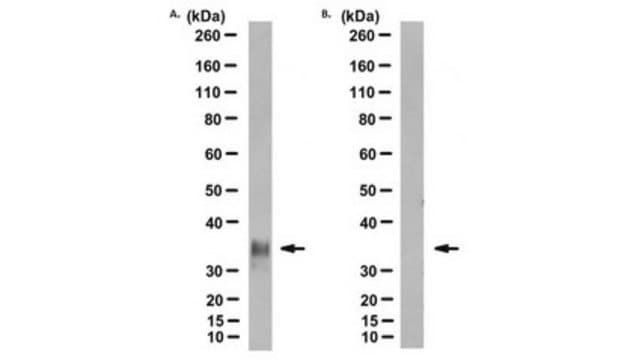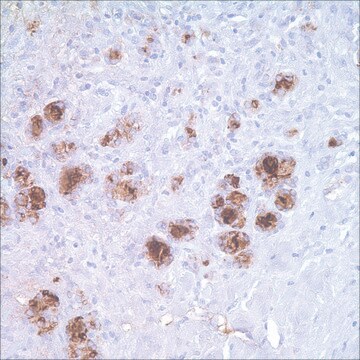G4296
GSK3β, active, His tagged human
PRECISIO® Kinase, recombinant, expressed in baculovirus infected Sf9 cells, ≥70% (SDS-PAGE), buffered aqueous glycerol solution
About This Item
Productos recomendados
recombinant
expressed in baculovirus infected Sf9 cells
Quality Level
product line
PRECISIO® Kinase
assay
≥70% (SDS-PAGE)
form
buffered aqueous glycerol solution
specific activity
143-193 nmol/min·mg
mol wt
~48 kDa
UniProt accession no.
shipped in
dry ice
storage temp.
−70°C
Gene Information
human ... GSK3B(2932)
General description
Application
Biochem/physiol Actions
Physical form
Legal Information
signalword
Danger
hcodes
Hazard Classifications
Eye Irrit. 2 - Repr. 1B - Skin Irrit. 2
Storage Class
6.1C - Combustible acute toxic Cat.3 / toxic compounds or compounds which causing chronic effects
wgk_germany
WGK 1
flash_point_f
Not applicable
flash_point_c
Not applicable
ppe
Faceshields, Gloves, Goggles, type ABEK (EN14387) respirator filter
Certificados de análisis (COA)
Busque Certificados de análisis (COA) introduciendo el número de lote del producto. Los números de lote se encuentran en la etiqueta del producto después de las palabras «Lot» o «Batch»
¿Ya tiene este producto?
Encuentre la documentación para los productos que ha comprado recientemente en la Biblioteca de documentos.
Nuestro equipo de científicos tiene experiencia en todas las áreas de investigación: Ciencias de la vida, Ciencia de los materiales, Síntesis química, Cromatografía, Analítica y muchas otras.
Póngase en contacto con el Servicio técnico








